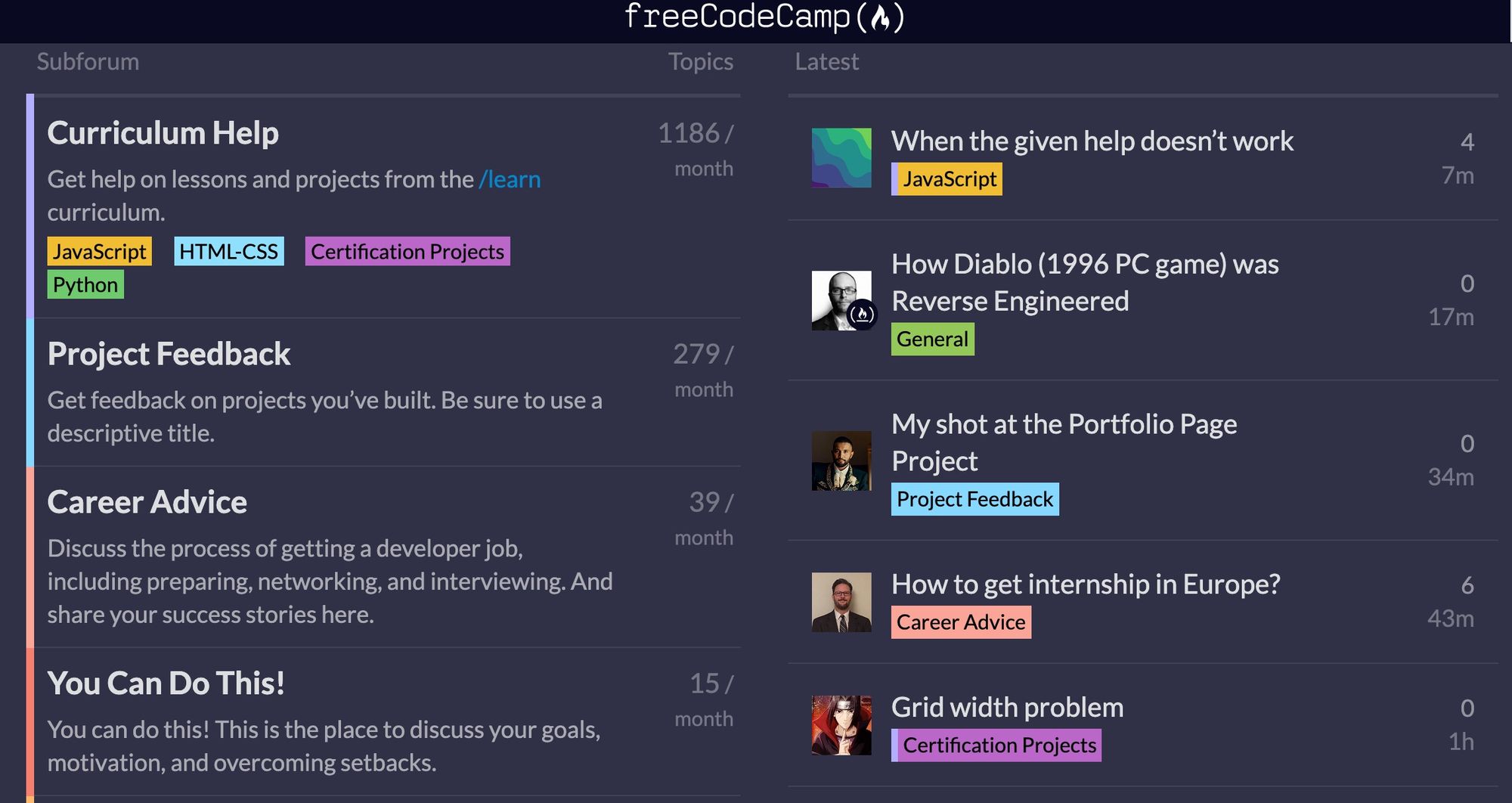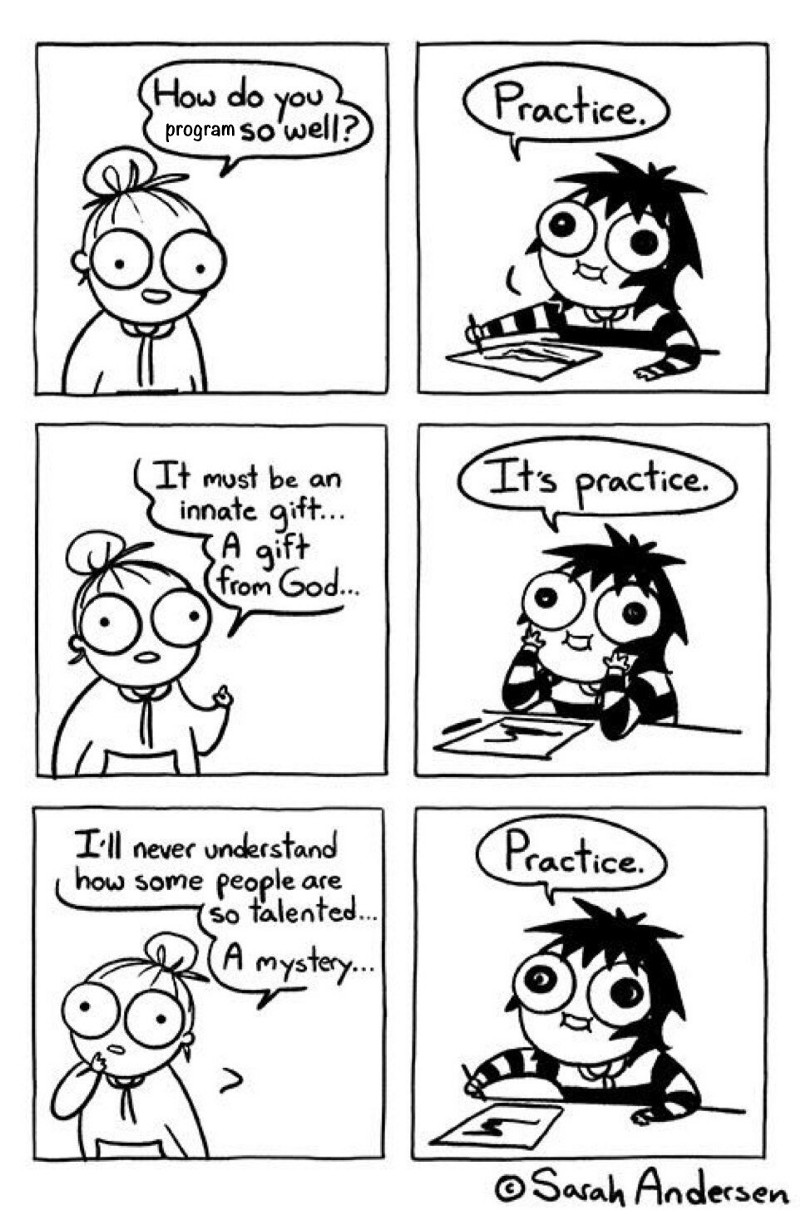freeCodeCamp's core curriculum now offers 10 verified certifications – including 4 Python-focused certifications.
These certifications are all self-paced and completely free. You can build the projects right in a browser, or code them on your laptop or phone and deploy them to the cloud.
How do freeCodeCamp certifications work?
All of the lessons and projects are publicly available. You don't even need to create a freeCodeCamp account to access them. But if you want to save your progress and eventually earn certifications, you will need to create an account.
Note that all accounts are private by default. freeCodeCamp.org takes privacy seriously, and we have a well-documented privacy policy. You can make your profile public in the settings, and can choose to make any certifications you earn publicly accessible as well.
Here's how these certifications work:
Each certification includes optional lessons to help you prepare for its 5 required projects.
When you feel ready, you can build the certification's 5 required projects and get all of their automatic tests to pass.
Once you've built all 5 projects, you can go into settings, accept freeCodeCamp's Academic Honesty Pledge, and claim your certification.
You get the certification immediately, and it lives on freeCodeCamp's servers at a permanent URL that you can put on your LinkedIn, résumé, or personal website.
Our bots will eventually audit all of your projects to check for plagiarism or other forms of academic dishonesty. If our bots flag anything suspicious, our team will manually review it. And if we determine you cheated, we'll revoke your certifications and permanently ban your account. So don't cheat. You'd only be cheating yourself. ?
What are the new certifications?
Here are the 6 certifications we introduced back in 2018. These focus on Full Stack Web Development using JavaScript:
- Responsive Web Design
- JavaScript Algorithms and Data Structures
- Front End Libraries
- Data Visualization
- APIs and Microservices
- Quality Assurance
These are still the best place to focus in 2020, and represent the broadest programming foundation and fastest path to a developer job.
This said, there are a lot of other skills we've wanted our curriculum to cover since day one. And we are thrilled to now add these to the curriculum as four new Python-focused certifications. Here they are:
- Scientific Computing with Python
- Data Analysis with Python
- Information Security
- Machine Learning with Python
Again, these are more advanced certifications. They assume that you have already completed the first 6 certifications. And thus have a strong understanding of algorithms, data structures, APIs, and other concepts.
I recommend you work through the entire curriculum from start to finish, so you can learn one language really well (JavaScript) before moving on to a second language (Python).
Now, you may be thinking: "but I heard that Python is a more beginner-friendly language than JavaScript." There are a number of reasons why many people recommend learning JavaScript first.
Each of these certifications has 5 required projects – each with its own test suite.
These projects can be built wherever you want. We recommend using Google's Colaboratory for the Machine Learning projects. It's a hosted Jupyter Notebook tool, and it's free and runs in the browser.
For the rest of these Python certification projects, we recommend using REPL.it. It's fast, free, and easy to use.
Each of these projects includes a link to a boilerplate that you can fork to get started.
If you want to code these projects on your local computer, you can clone these repositories. But you will need to host your solutions publicly on the open web so you can submit them and claim your certifications.
What else is coming soon for Version 7.0 of the curriculum?
As we announced last December, we are working toward a completely project-oriented curriculum. Instead of individual coding lessons, you will learn by building projects the entire time.
We are building more than 60 optional practice projects, such as:
- "Learn Basic JavaScript by Building a Role Playing Game"
- "Learn Express.js by Building an Stock Trading Platform"
- and "Learn Network Security by Building a Packet Sniffer"
In total, completing the entire freeCodeCamp curriculum will involve building more than 100 projects over the span of 3,000 hours. This is roughly the amount of time it would take to earn an associate's degree.
We are making steady progress on these projects. We are also updating our learning platform to make these more elaborate projects build-able right on freeCodeCamp.org.
As always, we don't have a ship date for these. We hope to push them to production the moment they're ready, and not a moment sooner. ?
You will notice that for the 4 new Python certifications, instead of having interactive lessons (like we have for the first 6 certifications) we have lecture-based courses. These courses are well-taught, and we are confident you'll learn a lot from them. Note that they are placeholders for our upcoming practice projects.
If you find the Python certification projects to be overwhelming, you may want to supplement your learning with other resources, such as our hundreds of free courses and tutorials on Python, data analysis, machine learning, and security. And you can ask programming questions and get feedback on your projects on the freeCodeCamp forum.

I want to thank the dozens of kind alpha testers who successfully built these 20 new projects and provided their feedback and improvements.
So yes, these projects can be built. And their tests can be passed. But you may be one of the first 100 or so people to have done so. If you encounter any bugs or confusing instructions, we encourage you to open a GitHub issue with your feedback.
What is the general timeline for the upcoming 60+ practice projects?
We will focus on rolling out the practice projects for the 4 new Python certifications first. These will replace the placeholder lectures in each certification.
Then we will replace the interactive lessons from the first 6 certifications with practice projects.
Remember that – aside from the 50 certification projects that are now live – all the lessons and practice projects are completely optional. You do not need to go back and complete them as we add them to the curriculum unless you want to. You can earn all 10 certifications starting today, by building each project's 5 required projects.
There is no reason to delay starting the curriculum. These practice projects will cover essentially the same skills and tools as the curriculum currently covers. They will just be more fun, interactive, and engaging, with even more repetition to help you better retain these concepts.
None of this is magic. You would learn all of these things from just practicing coding and building projects on your own anyway. The key to learning to code well is practice.

And freeCodeCamp gives you a single linear curriculum to practice in way that is both time efficient and sane.
You can check out the full freeCodeCamp curriculum and its 10 certifications here.
Happy coding. ?

